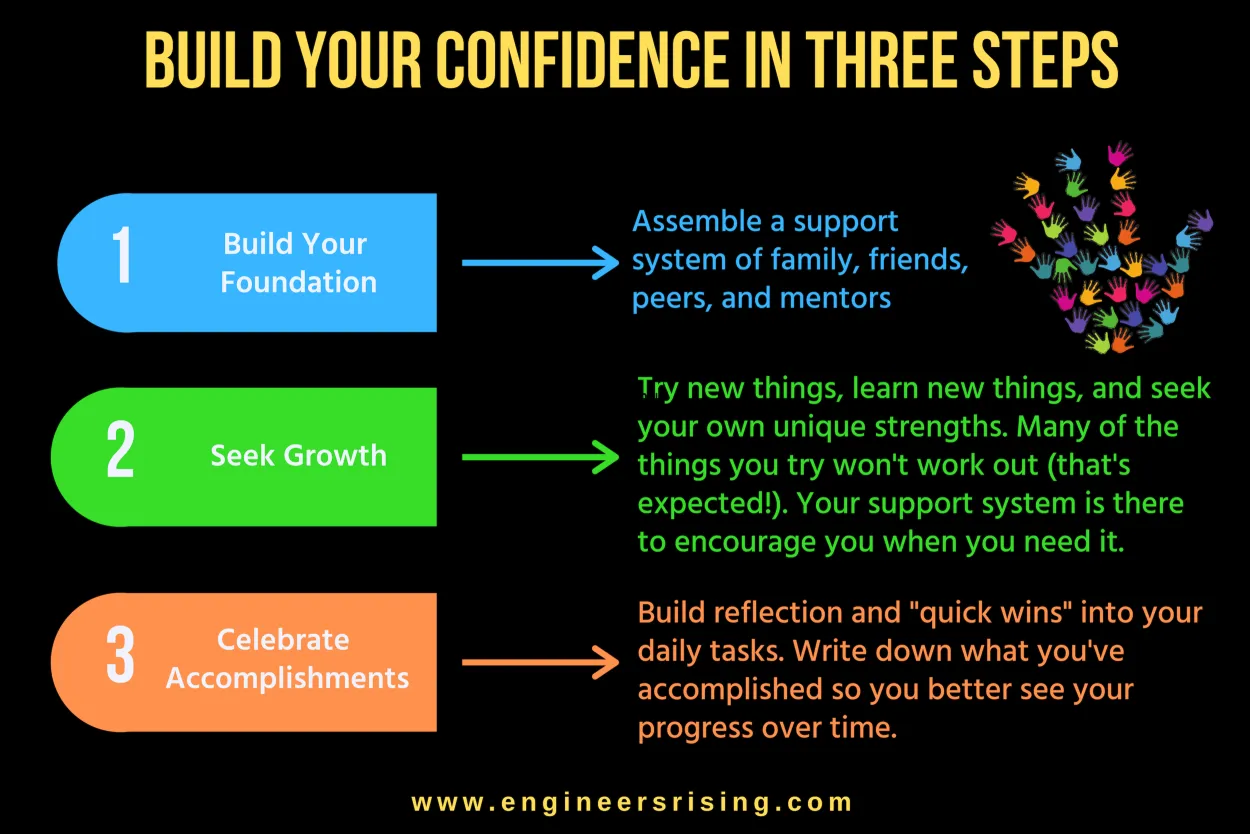Building Confidence as an Employee is essential for professional growth and success. It not only helps in performing tasks efficiently but also in taking initiative, making decisions, and communicating effectively. In this article, we will explore some strategies to boost self-confidence and become a valuable asset in the workplace.
Overcoming Self-Doubt and Imposter Syndrome
Self-doubt and imposter syndrome can be daunting obstacles to building confidence as an employee. These internal struggles often prevent individuals from recognizing their own abilities and achievements. However, there are ways to overcome these negative thoughts and develop the confidence necessary for success in the workplace.
Firstly, it is essential to acknowledge that self-doubt is a common experience felt by many individuals. Recognizing that you are not alone in this struggle can help alleviate some of the pressure and self-criticism. Remember that even the most accomplished professionals have moments of self-doubt.
Secondly, challenge negative thoughts by reframing them. Instead of dwelling on perceived shortcomings or failures, focus on your strengths and past accomplishments. Remind yourself of times when you have excelled or received positive feedback from colleagues or superiors.
Another effective strategy is to seek support from mentors or trusted colleagues. Engaging in open conversations about your self-doubt and imposter syndrome can help validate your experiences and provide valuable perspective. Guidance and encouragement from others can contribute to building your confidence.
Furthermore, setting realistic goals and celebrating small achievements can boost your confidence over time. Break down larger tasks into manageable steps and reward yourself for completing each milestone. By acknowledging and valuing your progress, you can gradually build confidence in your abilities.
Lastly, practice self-care and maintain a healthy work-life balance. Taking care of your physical and mental well-being is crucial in overcoming self-doubt. Engage in activities that bring you joy and relaxation outside of work, and prioritize self-care practices such as exercise, mindfulness, and sufficient rest.
In conclusion, overcoming self-doubt and imposter syndrome is a continuous journey that requires patience and self-compassion. By implementing these strategies, you can gradually build the confidence necessary to thrive as an employee.
Developing Skills and Expertise
In today’s competitive job market, it is crucial for employees to continuously build their skills and expertise to stay ahead. Developing yourself professionally not only benefits you as an individual, but also boosts your confidence as an employee.
One way to build confidence is to identify your strengths and areas for improvement. Take time to reflect on your skill set and determine which skills are essential for your role and industry. This self-awareness will help you focus your efforts on areas that will have the greatest impact on your professional growth.
Another effective method is to seek out opportunities for learning and development. Stay updated with industry trends and advancements by attending conferences, workshops, or online courses. This continuous learning will not only enhance your skills but also showcase your dedication and commitment to professional growth.
Mentorship and networking are also valuable for building confidence. Connect with experienced professionals who can guide and support you on your career journey. A mentor can provide valuable insights, advice, and help you gain a deeper understanding of your chosen field.
Additionally, don’t be afraid to take on new challenges and responsibilities. Stepping out of your comfort zone is essential for growth. It may be daunting at first, but by pushing yourself to learn and adapt, you will gain the confidence to tackle even more difficult tasks.
Lastly, always seek feedback and critiques from your colleagues and supervisors. Constructive feedback is necessary to identify areas of improvement and develop new skills. Embrace feedback as an opportunity to grow and refine your expertise.
Building confidence as an employee is an ongoing process. By continuously developing your skills and expertise, you not only enhance your professional value but also boost your confidence in your abilities. Embrace learning opportunities, seek mentors, and step out of your comfort zone – these are the keys to becoming a confident and successful employee.
Seeking and Utilizing Feedback
In order to build confidence as an employee, it is important to seek and utilize feedback effectively. Feedback is a valuable tool that can help us grow and improve in our professional lives. Here are some strategies to make the most out of feedback:
1. Be Open and Receptive
Approach feedback with an open and receptive mindset. Be willing to listen to constructive criticism and different perspectives. Remember that feedback is not an attack on your abilities, but an opportunity for growth.
2. Ask for Feedback
Don’t wait for feedback to come to you. Take the initiative to request feedback from your supervisors, colleagues, and even clients. Seeking feedback shows that you are proactive and committed to self-improvement.
3. Actively Listen
When receiving feedback, actively listen and pay attention to the comments and suggestions. Avoid becoming defensive or dismissing the feedback. Take notes if necessary and ask for clarification to ensure a thorough understanding.
4. Reflect and Evaluate
After receiving feedback, take the time to reflect on the information provided. Evaluate your strengths and weaknesses based on the feedback and consider how you can incorporate the suggestions into your work.
5. Take Action
Utilize the feedback received by implementing the necessary changes and improvements. Taking action demonstrates your commitment to personal and professional growth.
By seeking and utilizing feedback effectively, you can build confidence as an employee and continuously improve your skills and performance. Embrace feedback as a valuable tool rather than something to be feared, and you will thrive in your professional development.
Conclusion
Building confidence as an employee is crucial for personal and professional growth. By taking proactive steps such as seeking feedback, continuously learning and improving skills, and setting realistic goals, individuals can enhance their confidence in the workplace. Remember, confidence is not built overnight but through consistent effort and determination, anyone can become a more confident and successful employee.




